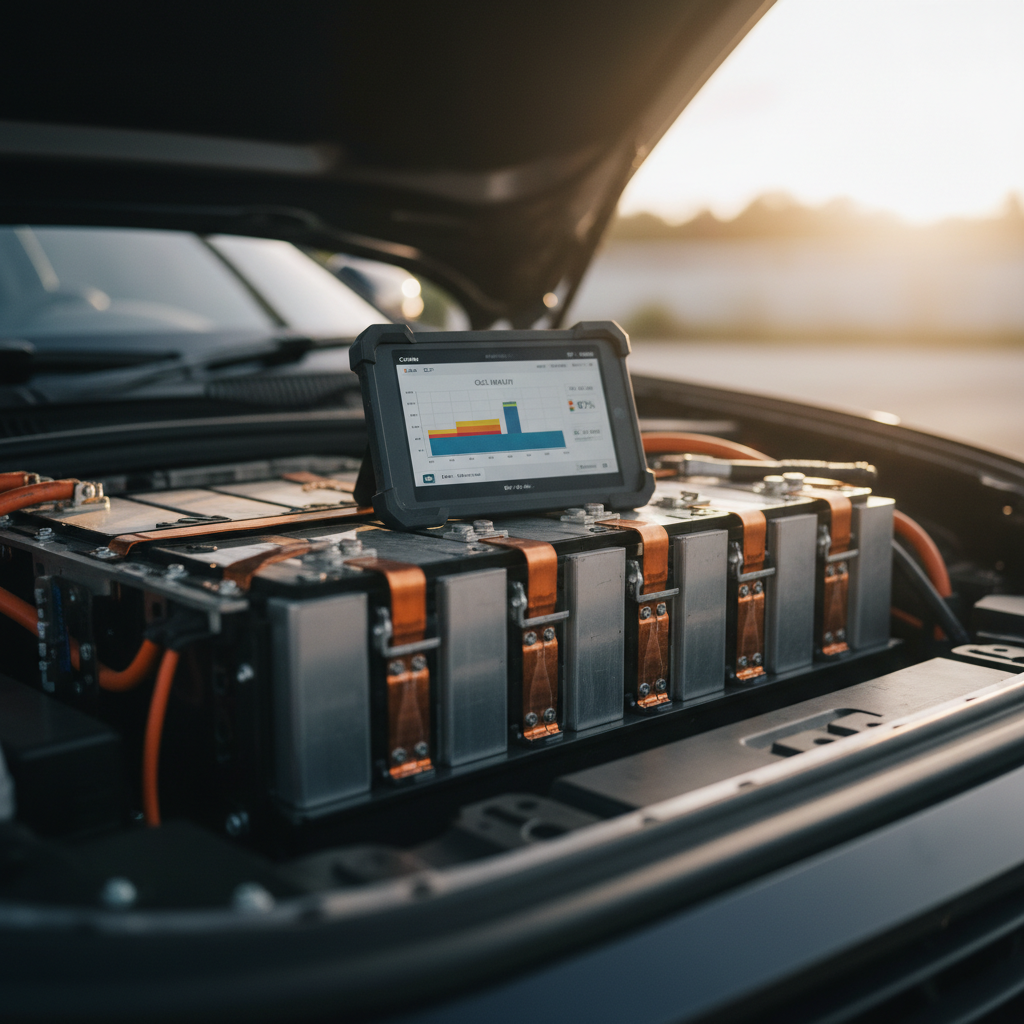You bought an electric car for the smooth torque and the smug silence. Then you went shopping for tires and nearly choked on the quote. If you’ve landed here searching for “ERANGE EV tires price”, you’re trying to figure out whether these EV‑specific tires are worth the extra money, or just another upcharge with a green label.
Quick take
ERANGE EV tires price overview
ERANGE EV is Sailun’s dedicated EV tire line, built around their EcoPoint³ technology and sold in North America in dozens of sizes from 15" to 22" rims. In the real world, that translates to a broad price band, but it’s not chaos, it’s tiers:
- Smaller commuter sizes (15"–17"): typically around $130–$190 per tire online before installation.
- Mainstream EV sizes (18"–20"): roughly $190–$240 per tire depending on width and speed rating.
- Large performance SUV / luxury sizes (21"–22"): roughly $230–$280+ per tire online, with brick‑and‑mortar installed prices often breaking $330–$360 per tire out the door.
Prices move fast
How much are ERANGE EV tires right now?
Let’s talk real listings as of November 2025, not brochure fantasy. Across major online retailers in the U.S., ERANGE EV / ERANGE EV Eco.Sphere pricing typically falls into these buckets:
Current ERANGE EV price bands (late 2025, online listing snapshots)
One national discounter currently lists Sailun ERANGE EV Eco.Sphere from about $104 to $266 per tire across 15"–22" sizes, depending on exact spec. Another retailer shows popular sizes like 235/45R18 around the high‑$180s, while big 20–21" fitments often land in the mid‑$220s to mid‑$260s before shipping and install.
Ignore “MSRP”
Sample ERANGE EV prices by size
Because EVs wear a wild range of tire sizes, from Leaf econobox to Porsche spaceship, it helps to anchor ERANGE pricing to real‑world examples. The numbers below are not quotes, just illustrative snapshots of what you’ll typically see online in November 2025 for Sailun ERANGE EV Eco.Sphere or equivalent ERANGE EV fitments.
Illustrative ERANGE EV price examples by size (online, tire only)
These are example price bands based on current listings. Your actual price will vary by retailer, local inventory, and promotions.
| Typical EV fitment | Example size | Use case | Approx. price per tire* | Notes |
|---|---|---|---|---|
| Compact EV / hatchback | 195/65R15 or 205/55R16 | Nissan Leaf, Chevy Bolt, older econo‑EVs | $140–$170 | Lower rolling resistance than generic all‑seasons; watch load index. |
| Mainstream sedan / small crossover | 235/45R18 | Model 3, IONIQ 5, ID.4 (similar sizes) | $185–$210 | Sweet spot of price vs range; often in the high‑$180s online. |
| Sporty crossover / performance sedan | 255/45R19, 255/40R20 | Mach‑E, Model Y, EV6 GT‑Line | $210–$240 | Wider rubber and higher speed ratings nudge the price up. |
| Luxury EV / performance SUV | 265/35R21, 285/35R22 | Audi e‑tron S, Porsche Cayenne E‑Hybrid, big performance SUVs | $240–$280+ | Some 22" ERANGE EV listings sit around the mid‑$250s online; installed prices can exceed $340 per tire. |
Use this as a sanity check when you’re staring down a tire quote.
About that asterisk

ERANGE EV vs other EV and regular tires: cost check
If you’ve shopped tires recently, you already know EV rubber comes with what the industry might call a premium and you might call a shakedown. The good news is that ERANGE EV usually lives in the lower half of the EV‑specific price spectrum.
EV‑specific tires (including ERANGE)
- Typical EV tire range: $150–$300 per tire for most passenger sizes.
- ERANGE EV often undercuts big premium brands by $30–$70 per tire in the same size.
- Designed for low rolling resistance, heavy curb weights, and instant torque.
Conventional all‑season tires
- Standard all‑seasons often run $80–$170 per tire for similar sizes.
- Cheaper up front, but tend to wear 20–30% faster when abused by an EV.
- More noise, less range, and sometimes sketchy wet traction on powerful EVs.
The false economy trap
Why ERANGE EV tires cost what they do
If ERANGE EV often undercuts the big premium badges, why aren’t they cheap-cheap? Because the physics of a 5,000‑lb battery car do not care what you paid. ERANGE is trying to thread a difficult needle: keep the price approachable while still doing the EV‑specific things your car actually needs.
What you’re paying for with ERANGE EV tires
Four line items hiding in that price tag
Higher load capacity
Torque tolerance
Low rolling resistance
Noise control
Where ERANGE fits in the market
How often you’ll really replace EV tires
Here’s the part nobody mentions in the glossy EV brochure: tires are consumables, and EVs eat them faster. Consumer testing and real‑world owner data consistently show EV owners replacing tires roughly 20–30% more often than drivers of similar gas cars, especially on powerful models.
- Many EV drivers see 20,000–30,000 miles from a set of performance‑oriented EV tires.
- Gentler drivers on modest‑power EVs can nudge 35,000+ miles with religious rotations and proper pressure.
- Drive your dual‑motor crossover like it owes you money? Expect to live at the lower end of that range.
Five ways to make ERANGE EV tires last longer
1. Rotate every 6,000–7,000 miles
Fronts and rears wear differently on EVs, especially dual‑motor cars. Follow a strict rotation schedule, more often if you’re spirited.
2. Keep pressures dialed in
Run what’s on the door jamb, not what your cousin runs on his pickup. Under‑inflation kills range and tire life; over‑inflation kills grip.
3. Get an alignment check yearly
Slight toe‑in or camber issues that a gas car shrugs off will chew EV tires in half the time. Pay for the alignment; it’s cheaper than new rubber.
4. Ease up on full‑send launches
Yes, it’s fun. No, your tires don’t enjoy it. Save the heroics for warm, dry pavement and accept the wear bill as the cost of entertainment.
5. Use a dedicated winter setup where needed
If you live with real winters, consider separate winter wheels and tires. EV‑specific all‑seasons are good, but they’re not magic on ice.
How to choose the right ERANGE EV tire for your car
Price is only half the story. The wrong tire at the right price is still the wrong tire. When you’re comparing ERANGE EV options to other brands, start from your car and your life, not the sale banner.
Start with your use case
- Mostly city + commuting: Prioritize low rolling resistance, ride comfort, and wet‑weather braking. ERANGE suits this well.
- Highway road‑tripper: Noise and tread life matter. Look hard at warranty mileage and owner reviews.
- Performance nut: If you’re tracking or canyon‑running your EV, you may still prefer a max‑performance summer tire over any all‑season EV tire.
Match the load and speed ratings
- Never go below the factory load index or speed rating, EVs are heavy and fast.
- It’s fine to step up in load rating slightly if that’s what ERANGE offers in your size.
- Double‑check the service description (e.g., 98W XL) against your owner’s manual.
Bring your EV into the conversation
Budgeting ERANGE tires into EV ownership costs
A lot of shoppers fixate on the monthly payment and the kWh per mile and forget that tires are the quiet line item that keeps showing up. With ERANGE EV, the idea is: slightly higher cost than generic all‑seasons, slightly lower than the big premium EV badges, and competitive cost per mile if you don’t drive like you’re late to every Supercharger.
Rough tire cost planning for a typical EV owner
Assumes a mainstream EV on 18"–19" wheels, 12,000 miles per year.
| Scenario | Tire type | Assumed set price (4 tires) | Expected life | Approx. cost per year |
|---|---|---|---|---|
| Frugal but EV‑friendly | Mid‑size ERANGE EV set | $800–$900 | 30,000 miles | About $320–$360/year at 12k miles. |
| Premium‑brand loyalist | Big‑name EV tire set | $1,000–$1,200 | 30,000–35,000 miles | Roughly $340–$480/year. |
| False economy | Generic all‑season set on EV | $600–$700 | 20,000–22,000 miles | $330–$420/year plus range and comfort penalties. |
This is math, not prophecy, your driving style, roads and climate may move the numbers.
Don’t ignore install and extras
FAQ: ERANGE EV tires and pricing
Frequently asked questions about ERANGE EV tires and price
Bottom line: when ERANGE EV tires make sense
If you drive an EV, tires aren’t just rubber donuts, they’re part of your powertrain. The right set quietly returns range, comfort and control; the wrong set makes your car feel older and cheaper than it is. In the current market, ERANGE EV tires price into a pragmatic middle lane: not the cheapest option available, but often the best value once you factor in EV‑specific design and expected life.
If you’re shopping for a used EV, fold tires into the deal math. A car that “just needs rubber” may actually need $800–$1,200 in EV‑specific tires in the first year. Buying through Recharged means that’s not a mystery line item, the Recharged Score gives you verified tire and battery health up front, plus transparent pricing and financing so you know exactly what you’re signing up for, from kilowatts to contact patches.



